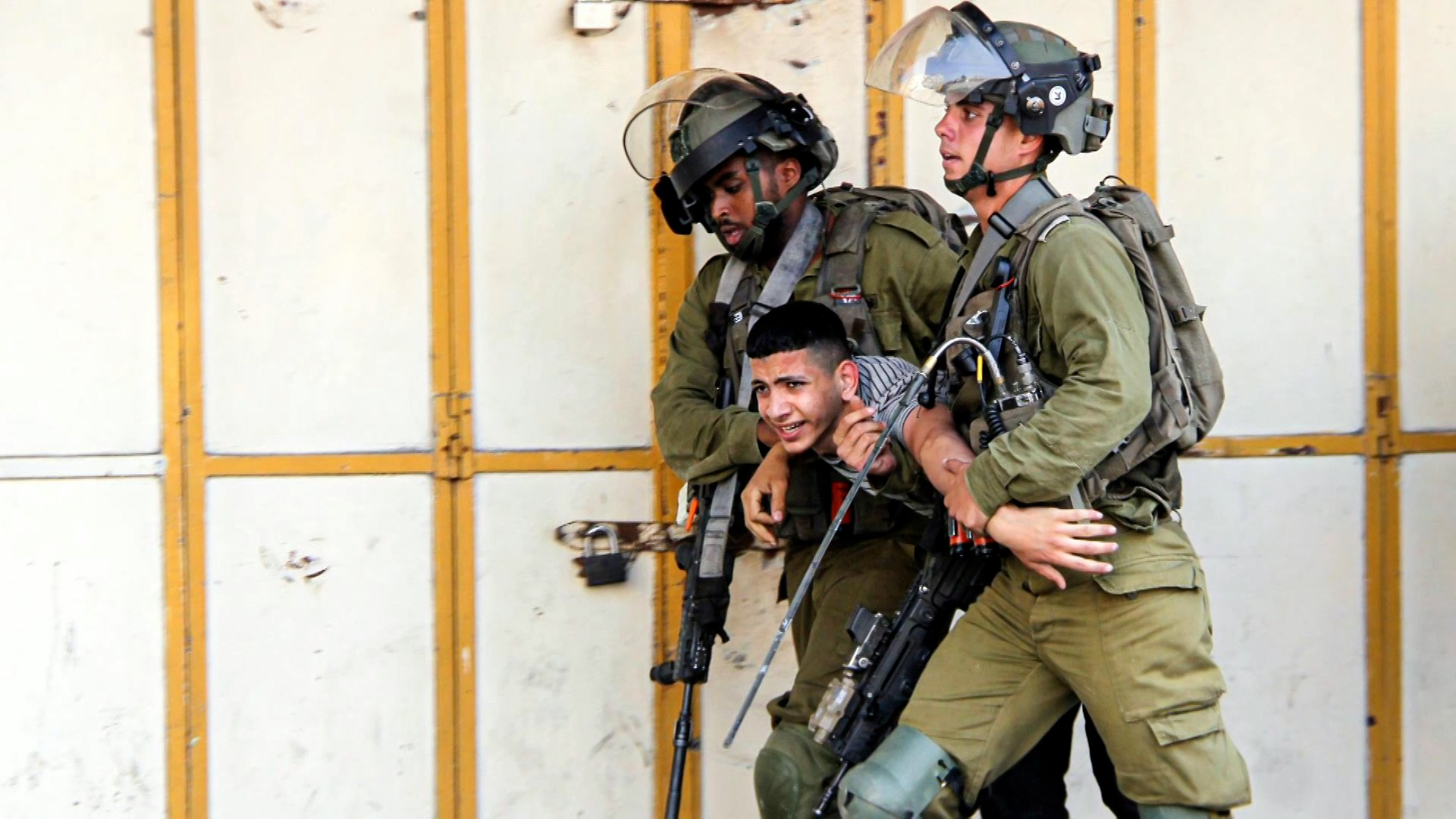Tension prevails throughout the West Bank, as the Israeli occupation forces continue to escalate incursions, arrests and demolitions in all areas, amid warnings of an explosion in the situation, and calls from Palestinian forces for a "day of rage" tomorrow, Friday, denouncing the practices of the occupation.
The Palestinian News Agency (WAFA) said that dozens of Palestinians were injured and suffocated during clashes with the occupation forces yesterday, Wednesday, in the governorates of Bethlehem, Hebron and Tulkarm in the northern West Bank.
According to the same source, the occupation forces arrested 11 Palestinians throughout the West Bank, including occupied Jerusalem. The Palestinian Prisoners Club said that among the detainees was the leader of the Islamic Jihad movement and the former prisoner Firas Hassan, who was arrested by the occupation forces at a military checkpoint at the entrance to the city of Bethlehem.
According to Wafa Agency, the occupation forces demolished a house and notified the demolition of 4 others in Jericho, demolished a timber shop in Husan, west of Bethlehem, and bulldozed the floor of a house under construction in Shuafat refugee camp. Bajr” and a truck south of Hebron, and forced Jerusalemites to demolish his house in Al-Ashkariya neighborhood in Beit Hanina, under the pretext of building without a permit.
Settlers' incursions
In the context of the continuation of the escalation, groups of settlers, under the protection of the occupation forces, stormed the Ibrahimi Mosque in the Old City of Hebron, chanting racist slogans and raising Israeli flags.
Ghassan Al-Rajabi, director of the Ibrahimi Mosque, described the settlers' march - which numbered 500 settlers - as provocative, and said that it came within the fierce attack and schemes to Judaize the Haram and seize Palestinian homes.
Eyewitnesses reported that the occupation forces reinforced their presence in the Bab Al-Zawiya area, the Ibrahimi Mosque and the Old City of Hebron, to secure the settlers' access to the Haram.
Since 1994, Israel has divided the Ibrahimi Mosque by 63% for Jews and 37% for Muslims, following a massacre committed by a settler that resulted in the martyrdom of 29 worshipers.
This was preceded by groups of settlers storming the courtyards of the blessed Al-Aqsa Mosque, and the Islamic Endowments in Jerusalem reported that the courtyards of Al-Aqsa Mosque witnessed incursions by successive groups of settlers from the side of the Mughrabi Gate, during which they performed Talmudic rituals and carried out provocative tours.
According to the Wafa Agency, Al-Aqsa Mosque is subjected to daily incursions by settlers, in the morning and evening periods, with the exception of Friday and Saturday.
This comes as Palestinian forces called for a "day of rage" tomorrow, Friday, to condemn the Israeli army's practices against the Palestinian people.
For his part, Palestinian Prime Minister Muhammad Shtayyeh warned of the dangerous situation in the Palestinian territories in light of the political vacuum, the world's preoccupation with other issues, and the absence of accountability for the occupation for its crimes and violations.
This came during his meeting with Turkish President Recep Tayyip Erdogan in the Turkish city of Konya on the sidelines of the participation in the opening of the Islamic Solidarity Games in its fifth edition.
For its part, Amnesty International said that Israel imposes harsh apartheid that stifles all Palestinians.
She added that Israel has launched 4 devastating aggressive attacks on the Gaza Strip since 2008, and that its blockade is "continuous and illegal."
escalation stages
This escalation comes as Israeli Minister of Internal Security Omer Bar-Lev and military officials confirmed the continuation of operations in all areas of the West Bank and their readiness to repeat the Gaza scenario.
Israeli Defense Minister Benny Gantz also warned that Israel would respond forcefully if the calm in the south was breached.
Gantz was quoted by the Israel Broadcasting Corporation as saying that the leaders of Islamic Jihad "are not safe wherever they are," and said that "all heads of terrorist organizations should live in anxiety."
Since Yair Lapid took over as prime minister of the Israeli government, an escalation began, its episodes recurring very quickly, which was considered an attempt by a man with no military experience to appear as a strong man and to gain points before the upcoming November elections in Israel.
The following are the stages of this escalation since the beginning of August:
August 1, Israeli soldiers raided Jenin refugee camp and arrested Bassam al-Saadi, a prominent figure in the Islamic Jihad movement in the occupied West Bank.
On August 5, Israel launched a military campaign in Gaza that began with the assassination of Taysir al-Jabari, the commander of the northern sector in Saraya al-Quds, the military wing of Islamic Jihad.
August 7, coinciding with the Israeli escalation in Gaza, hundreds of settlers, under the protection of the occupation forces, stormed the courtyards of Al-Aqsa Mosque, claiming to commemorate the so-called “memorial of the destruction of the Temple.”
August 8, in the village of Rumana, northwest of Jenin, the homes of the two prisoners, Subhi Sbeihat and Asaad Al-Rifai, who carried out the Elad operation in Tel Aviv, in early May, demolished.
August 9, the occupation forces assassinated Ibrahim Al-Nabulsi, the leader of the Al-Aqsa Martyrs Brigades of Fatah movement, in the old city of Nablus, and two of his companions.
On August 10, the Palestinian Ministry of Health announced that the number of martyrs as a result of the Israeli attacks in Hebron had risen to 4, after the death of a young man as a result of being shot by the occupation. On the same day, groups of Israelis stormed the Ibrahimi Mosque, chanting racist slogans and raising Israeli flags.

